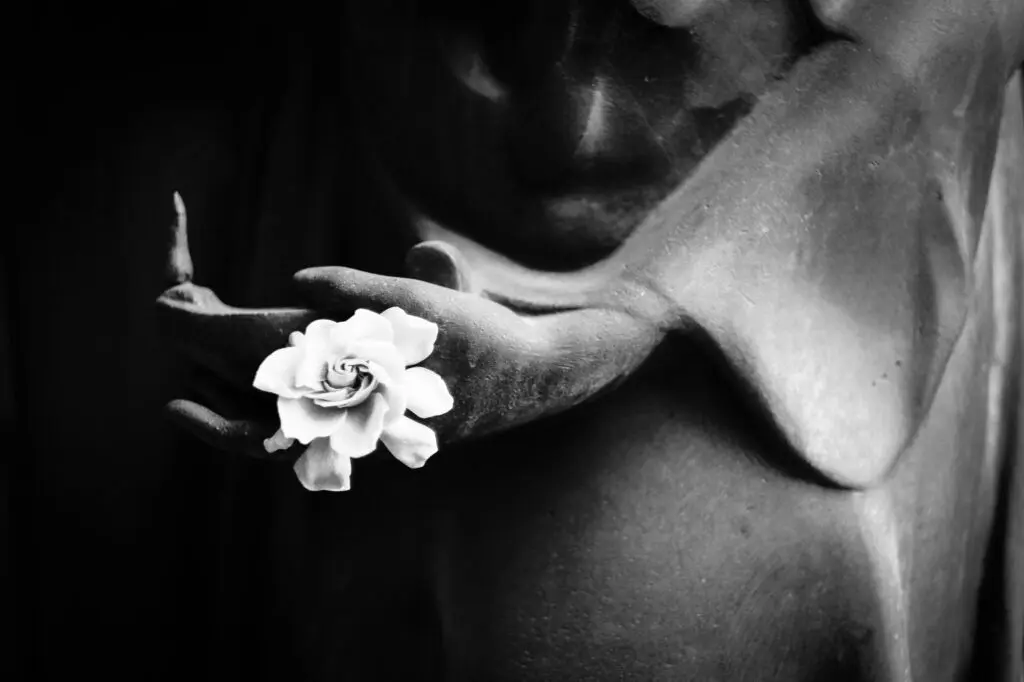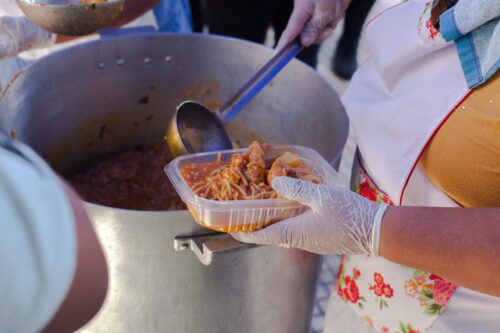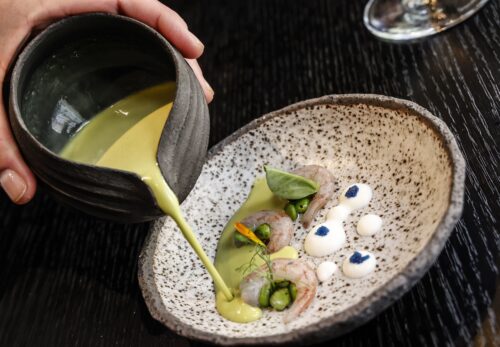Survival Notes

despite the Maangamizi,
[1]
[1]
Maangamizi is a “Kiswahili term that means the intentional destruction and dispossession of peoplehood, nationhood, and relationships to Ancestral Lands that has occurred as a result of the continuum of Afrikan chattel enslavement, colonialism, and neocolonialism.”
you survive.
no paraffin lamps, no sizzling meat
no coconut oil, no rotting debris,
no widespread teeth, no cardamom
seeds, no naming ceremony
here, in the so-called promised land
its stony shore,
cracked lips,
the concrete floors.
here, at the point of no return,
no leaving, only arrival to
a Motherland that shuns you.
her cabinets of curious,
trapped skins, leather hides.
you yearn for a surface
to etch your name into
here, where records reign supreme,
inventory book, glass vitrine
the distance close but not
sugar blocks [plantation, caribbean],
hot black tea [darjeeling, ceylon],
grand ivory piano [jungle, africa]
smooth black keys—
metallic manila curve [west, elmina]
the wicked gleam
the sullied sickle.
in the depths of grey
you remind yourself that
babylon has no seasons,
only winter, even when skies part
there is no sun,
there is the grate of the
iron tongue, the glint of coin,
but, say it again, there is no sun.
try as you may, the shadows, too,
make the claim, there is no sun.
and yet you hold on to your
own hand, your weighted wrists.
find a surface to etch your name
onto, into, even when paper
becomes flesh. trust that despite
the deluge, they will find you.

























